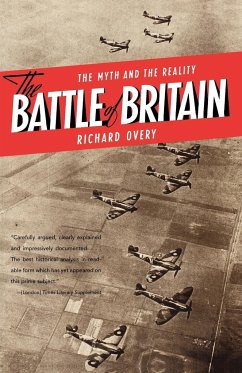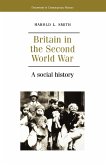The battle of Britain pitted the Hurricanes and Spitfires of the Royal Air Force against the Messerschmitts of Hitler's Luftwaffe in the skies over England in 1940. It was immortalized in Churchill's words, "Never in the field of human conflict was so much owed by so many to so few," but it has since been debunked by revisionists as an inconclusive and even strategically flawed encounter for the British. In this assessment of the battle, Richard Overy restores the historical balance. He delivers shrewd judgments on the critical elements for both sides, from strategy to leadership, command organization, communications, and training to the technology of fighters, bombers, and radar. Overy shows that even if the popular myth overshoots the mark, the significance of the battle remains undiminished in the light of realistic judgments. A necessary battle, it marked the end of Germany's string of victories, forestalled a German invasion, and kept Britain in the war.
Hinweis: Dieser Artikel kann nur an eine deutsche Lieferadresse ausgeliefert werden.
Hinweis: Dieser Artikel kann nur an eine deutsche Lieferadresse ausgeliefert werden.








